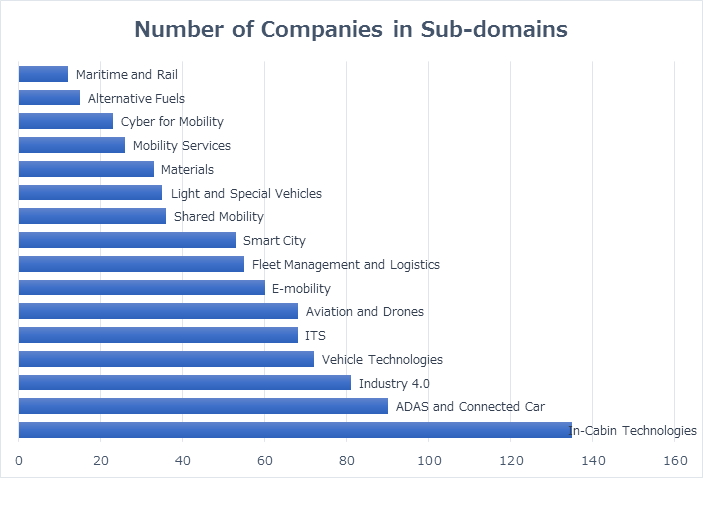Israel innovation is the engine of the mobility revolution
Over the course of the last several years, Israel has become a worldwide leading hub for innovation in the automotive and mobility domain. This is despite Israel having almost no automotive manufacturing industry of its own.
“Overall, the Israeli automotive and smart mobility industry is becoming an innovation lab and pulse generator for the movements connected with electric, autonomous and smart mobility.” (“Israel’s automotive and smart mobility industry – Electrified, autonomous and intelligent” – A report by global strategy consulting firm Roland Berger).
Israel has been considered the “startup nation” for years. However, the automotive ecosystem was kicked off in 2012, following the establishment of the “Fuel Choices & Smart Mobility Initiative” – a joint program between the Israeli government, Israeli universities and the private sector, aimed at boosting innovation in the fields of energy and mobility. This program was the catalyst to several research centers, accelerators and many of the startups which are leading the domain today.
The Israeli mobility ecosystem covers the whole gamut of sub-domains from ADAS sensing to smart city and from cyber security to in-cabin technologies:

These companies are very varied also in their type of product from software to chip design, from materials to novel business models.
The ecosystem has been repeatedly validated by the huge deals that happened in the last few years. Biggest and probably the best known is the acquisition of Mobileye – a worldwide leader in ADAS and autonomous systems by intel for a whopping $15.2B. Other notable examples include Daimler’s investment of $200M in the ride-hailing service VIA, Continental’s $430M acquisition of the automotive cyber leader Argus, BMW’s choice to equip its future vehicles with solid-state LIDAR’s developed by Innoviz, Ford acquiring SAIPS – a computer vision leader to be used in their autonomous driving effort, Daimler’s investment of $60M in Storedot’s next-generation fast-charging battery technology, and many more.

The validation comes not only in the form of M&A or deals with Israeli companies, but also in the form of opening R&D centers in Israel. Several of the world’s largest OEM’s and Tier 1 suppliers, such as GM, Daimler and Harman, have chosen to open R&D centers in Israel to leverage the innovation capability of the ecosystem. Others still, have opened innovation centers in Israel to better collaborate with Israeli startups and universities, such as Volkswagen, Porsche, Renault-Nissan-Mitsubishi alliance and Hyundai.
In our next few articles we will deep-dive into select sub-domains of the mobility ecosystem and explore how innovation from Israel can bring solutions to some of the most pressing use-cases and needs automotive giants are facing on the push towards new mobility.












